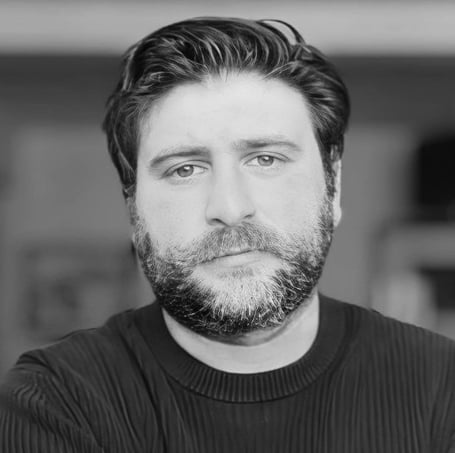He’s flown almost a million miles already this year. As CEO of Momentum Worldwide, Chris Weil travels between the agency’s 68 offices globally, proselytizing for world-class creative that transcends the medium. This month, he’s a keynote speaker at PROMO Live. Weil has given Senior Editor Betsy Spethmann a preview of his presentation, and provided further thoughts on entrepreneurship, clutter, global culture and Mighty Mouse.
Q: What do you mean, “We are the clutter?”
A: A few years ago, we set out to find a way to measure creative ability of our offices around the world. Is there a standard measurement other than awards and profitability? So we set up 10 questions; the first one was, “Does it break through the clutter?” One creative director picked up another office’s board and said, “This is the clutter.” It was a direct shot. Often there are more boogers on the page than you know what to do with — there’s nothing visually appealing and no idea there. I see that too often in retail and packaged goods. Promotional marketing isn’t the clutter; execution is often the clutter.
Q: Are consumers better marketers than marketers?
A: Yes. We spend too much time talking to ourselves and to clients about what the brand means, and about the silos — business units, budgets. Very few companies have a holistic view of their communications because so much sits in different silos with different budgets and timeframes. Consumers are not constrained; they just consume the message. There’s a purity to the message when it’s right. And if the product is strong, then you’ve got an advocate.
Look at Crispin Porter + Bogusky: They demand to play across every field, in every business unit. [That scope] allows you to manage the messaging at all levels, as opposed to doing just what you’re hired to do. We get to do that some; we’re investing in creative prowess and thought leadership so we can do it more.
Q: What motivates a creative team?
A: Being able to have unbridled creativity, so that one, they can pull anything off, and two, a client will buy it. If you can free creatives up to have 100% belief that no matter what they come up with — because our medium is the world — we really can execute it, then you get unbridled creativity.
Our industry’s ability to pull off complex programs is what we’ve grown up on. We have innate ability to pull off the complicated. Well, to break through now, you have to do things that haven’t been done. And we can pull off anything.
I don’t believe that the creative team is the answer; I believe in the yin and yang of account and creative to develop ideas. With complex messages and things that haven’t been done, you have to have the interplay between the two to make great creative.
And lastly: design, design, design. That’s where the industry often fails. Even if there’s a big idea, sometimes the visual execution doesn’t do it justice.
Q: What’s wrong with entrepreneurs?
A: Nothing. Anyone who can do it on his own, I have all the respect in the world for that. I’ve tried to keep an entrepreneurial culture alive here by pushing business decisions down; the best decisions are made as close to the client as possible. Our global staff is three people. Anything more is just overhead.
What makes an entrepreneur great is having a vision. But once you sell [your agency], you buy into a new vision. Once you cash that check, it’s not your vision alone. You lost control; it was your decision. You’ve got the Ferrari in the garage, not me, pal.
Often the level of management beneath an agency’s owner don’t have the same opportunities [to sell and sever ties], so you make your decision to buy [an agency] on the level below, not on the owner. An agency only has its culture; that’s all that differentiates us.
Q: What do you like about running a global business?
A: The complexity of different cultures. Watching multiple offices work together to do better work for one client. I love to see the commonality that exists among different cultures. [Being global] allows us to work with the biggest and best brands in the world. They challenge us, and let us play on a stage with them.
Q: How — and when — do you turn off work?
A: The only time I truly turn it off is sailing. I don’t do it as much as I used to. Time zones make it hard to get away; I’m talking to Asia while making breakfast for my kids. But I believe in time off. I write a weekly newsletter to the whole staff that highlights people who do cool things on their time off. One woman just took two weeks and went to Mexico for surfing camp. If you don’t take time off, how do you get inspired?
Q: Superman vs. Mighty Mouse, advertising vs. promotion: who’d win?
A: Both would lose. It’s not about discipline marketing anymore. It’s about having an idea, and then using the many tactics at our disposal to get the idea to connect with consumers. [Agencies] shouldn’t be defined by their tactics, but by their ideas, and their ability to execute them with strong design across any medium.
We’ve got media companies saying they can do promotion, and ad agencies trying to figure out where they fit in the new world of no TV, digital agencies saying that the world is two-way and the rest doesn’t matter. Promotion could be narrowly defined into a small tactic in a small window, or in its broader sense of an activity that causes an action. In the end, it’s all about moving the needle to helping our clients’ business grow. That’s the ultimate definition of a good or bad agency.
FREE Product Information
With the click of a mouse, receive free information about any of the products and services advertised in PROMO Magazine. Simply go to www.freeproductinfo.net/promo or www.promomagazine.com and click on Free Product Info to receive the information via postal mail, fax, e-mail — however you choose! Also, Web sites or search related articles are available in PROMO’s archive of feature stories.
 Network
Network

